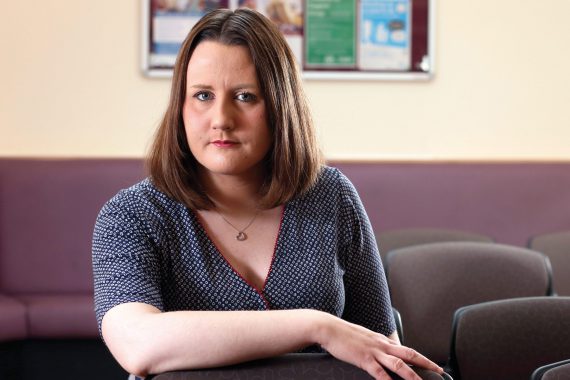Contrary to popular misconceptions, GPs are usually quite clever.
I’ve seen a man with overwhelming fatigue after a bout of diarrhoea, and recognised that his progressive ascending muscle weakness pointed to Guillain-Barre Syndrome. I’ve seen a man who came in asking for advice about reducing his alcohol intake, and we developed enough of a rapport for him to feel comfortable disclosing his participation in unprotected group sex.
Now that I mentioned it, he had lost some weight, and yes, he was very tired. Blood tests confirmed a hepatitis B infection. I’ve seen a previously healthy 40-year-old woman with a five day headache, and recognised from the history that the sudden onset and the progressive photophobia and vomiting suggested serious pathology. A CT head scan confirmed widespread subarachnoid haemorrhage, and she spent a month in our local neurosurgical hospital. All that, and I haven’t even finished my GP training yet.
If the Government funds and supports general practice properly, then they will probably find that the job sells itself
So I agree with Health Education England that there truly is ’nothing general about general practice’. Assessing a patient in ten minutes, with nothing more than the history and examination to guide the initial diagnosis, is immensely challenging – but rewarding, too. But cheery, superficial short films about skydiving forms and asthma checks do nothing to promote the career to a new generation of young doctors.
If the Government wants 50% of junior doctors to become GPs, it needs to work with medical schools to raise the profile of primary care on the undergraduate medical curriculum. When I left medical school in 2011, I had spent just ten weeks in general practice over the course of three years of clinical placements. This does not reflect the central role that primary care plays in the UK healthcare system, and reinforces the perception that it is a second-rate career option.
One of the great strengths of general practice is the scope it offers for portfolio and flexible working. To encourage young doctors into GP training, the Government should promote training schemes offering something more than the standard three years of hospital and GP placements. For example, trainees could be supported to develop a specialist clinical interest, or could receive protected time out of training to pursue further study.
Where such schemes already exist, they are usually well-received. For example, I am extending my training by a year to complete a medical leadership fellowship with Health Education North West. As well as a place on a fully-funded Masters degree, I receive protected time out of training to develop projects and shadow healthcare leaders.
So far I’ve presented an audit at a national conference, observed a RCGP council meeting, and spent a day with the shadow minister for mental health, amongst other things. This rich and varied training will not only equip me for future leadership roles, but also protects me from burnout and boredom by keeping my working week varied.
General practice will have a recruitment problem until UK primary care becomes a more attractive environment in which to work. Workload is rising and funding and resources are not keeping pace. Increasingly, GPs are succumbing to stress and burnout and are cutting their hours or leaving the profession. Is it any wonder that junior doctors are reluctant to sign up if their only exposure to general practice was a medical school placement where they watched GPs slog through paperwork until 9pm every night, worrying about whether they had the right sort of curtains before their CQC inspection?
If the Government wants to improve GP recruitment, all the promotional videos in the world will not entice trainees to choose a career in which they will be underfunded, under-resourced, and underappreciated.
The Government needs to commit to supporting primary care: fund us properly, so we are not carrying out 90% of patient contacts for 9% of healthcare spending; extend crown indemnity to GPs, so defence organisation costs do not erode a huge chunk of GPs’ salaries; and reform the CQC inspection regime to minimise pointless box-ticking which does not say anything about the quality of care offered to patients.
The heart of our job – providing long-term, person-centred care – is a very attractive proposition. If the Government funds and supports general practice properly, then they will probably find that the job sells itself.
Dr Heather Ryan is a GP registrar in Liverpool
Pulse October survey
Take our July 2025 survey to potentially win £1.000 worth of tokens















